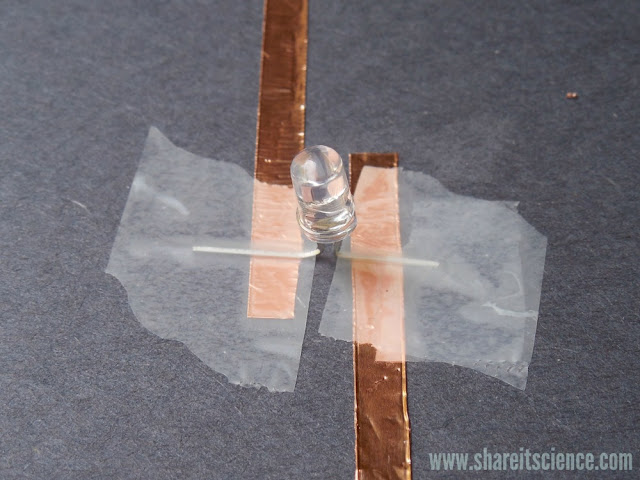When I was teaching in the science classroom I used "design your own board games" every year with my 4th and 5th graders as a way to review at the end of the term. Kids love building games, and they worked hard to make the games challenging for their classmates, which meant they really reviewed the material accurately to do so. I always had to incorporate extra time into my plan for building the games and the culminating game tournament.
This post contains affiliate links, please see disclosures for more information.
Paper Circuit Board Game Materials
You will need:
You might also want:
**PLEASE NOTE: Lithium coin cell batteries can be harmful, even fatal, if swallowed. Please keep away from small children.
Build a Board Game
It's a good idea to first map out what your game will be about, the objective and the basic idea behind how it will be played. How many people can play? What additional supplies might you need? A spinner or die? etc.Kids and students will also need to understand the general idea of an electrical circuit. They will learn a ton through trial and error figuring out how to build them, but giving some background is important. You'll find an engaging lesson to learn about circuits and conductivity here.
The copper tape makes it easy to build circuits into your paper and cardboard game board. You peel off the paper backing, and stick it anywhere. The prongs of the LED light bulbs need to make a connection with the copper, and the same goes for the battery. Depending on the conductivity of your copper tape, you might need to fold the corners, rather than put one piece of tape over another. (There are some great tutorials on how to deal with corners and curves here
and on this instructables page.)
The easiest way to connect the battery to the circuit is to fold the corner of the paper over the battery as we did in this example, however, I'm sure that there are many other creative solutions.

Common hang-ups can be placing the prongs of the LED bulbs backwards (they only work in one direction) or not placing the copper tape in the right place to connect with the battery. This is a great tutorial from the Exploratorium on paper circuits.
There will definitely be some trial and error, and that is what makes this an excellent STEM learning activity.
Have kids start out with simple circuits, one bulb only. This way there are only so many things to test and switch if it doesn't work right away. Then once they become experts, they might want to try multiple bulbs (each bulb will need its own battery), or making a "switch" to turn on the lights.
We connected the circuit with the game piece by placing a gap in the circuit on the game board and sticking copper tape on the bottom of the game piece. The possibilities are endless once you get the hang of what you are doing. Here is another great resource for help with paper circuits.
STEAM Saturday
Check out these other great STEAM activity ideas for keeping your kids or students busy indoors!
Ivory Soap Science Experiment :: Schooling a Monkey
Straw Boats Engineering Challenge for Kids :: Science Kiddo
Teach Your Kid to be a Project Engineer :: From Engineer to SAHM
Looking for another paper circuit project? Make a light-up lightning bug life cycle! Instructions here.











No comments:
Post a Comment